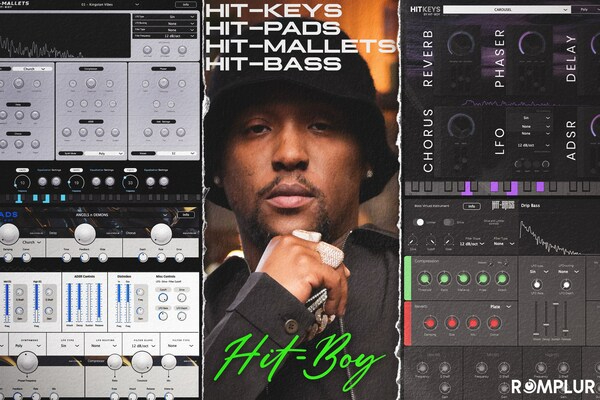A Deep Dive Into The Tik Tok Algorithm
How exactly does the Tik Tok algorithm work and how should you be using it as a musician?

Music Tech category interest
Tik Tok is quickly becoming one of the most important platforms for helping burgeoning musicians further their careers. A viral video on Tik Tok can transform an unknown artist into a globally recognized celebrity in a matter of days, or sometimes even hours. What that artist does with that newfound fame, and whether it is ultimately good for or detrimental to their career, is another question altogether. In the neverending search for overnight success, everyone is asking the ultimate question, how exactly does the Tik Tok algorithm work?
Much like the algorithms utilized by Facebook, Twitter, Google and Youtube, the Tik Tok algorithm uses machine learning to rank the quality, relevance and popularity of each video uploaded to the platform. One of the things that makes Tik Tok so popular is that it plays on the short attention span of its core demographic which at the moment consists mostly of tweens, teens and millenials. In the same way that Twitter captured a massive audience in 140 character blips, Tik Tok is appealing to the average attention deficit of its users who, oddly enough, spend an average of 46 minutes per day on the platform.
So what are the major ranking factors behind the platform? Let's pull back the curtain.
The Tik Tok algorithm works, in a lot of ways, like the Instagram algorithm. It serves its users posts based on engagement. The more that a specific user, aka your potential fan, engages with with a specific account (hopefully yours), the more likely they are to see videos from that account. The algorithm also pays close attention to how long the user (your fan) views each video. If they watch your video in full, your future videos are more likely to be "pushed" to their feeds. In other words, your videos should be created in a way to maximize the full 15 seconds allowed. You are an artist, if you can't keep a viewer's attention for a mere 15 seconds, you may be in the wrong business.
The more your videos are pushed to users, the more likely they are to make it to Tik Tok's "For You" page, a feature which works much like Instagram's "Explore" page. This is important to you in pushing hashtags and relevant content within your videos as the algorithm pushes content based heavily on user "exploration". For example, if your video is announcing a new single coming out on a Friday, you may want to tag your video with polular hashtags like #newmusicfriday, especially if Spotify has added your single to their playlist of that name.
Another important factor in Tik Tok's rankings is simply your settings. Your geographical location, language preferences and device type play a role, albeit a small one, in who will ultimately see your video. That said, the more worldwide engagement you get, the less those settings become a factor.
In summary, Tik Tok's algorithm shows all videos, regardless of who posted them, to interested users based on location, exploration, settings and engagement, though not necessarily in that order. Once shown, it is up to you to keep your viewers engaged and that starts when you create the video. Your follower count is not necessarily an initial deciding factor in who sees your video. Yes, your video can go viral even if you have very few followers. It happens all the time. It should also be noted that how positively viewers react to your videos affects your videos' exposure to other viewers.
More Photos
More from Music Tech

Music Tech
EVA, Tech Company Connecting Corporate Bookers to Local Performers, Launches in NYC
Eighth and largest market to date for EVA, NYC launches ahead of LA in early 2025

Music Tech
Hit-Boy Partners with Romplur to Transform Beatmakers into Software Entrepreneurs, Creating New Revenue Streams for Music Creators Worldwide
Grammy-Winning Producer Hit-Boy Launches Signature VST Plugin Suite and Contest for Creatives

Music Tech
Endel and Universal Music Group to Create AI-Powered, Artist-Driven Functional Music, Designed to Support Listener Wellness
Functional music represents one of the largest sub-categories of music listening worldwide

Music Tech
SoundCloud and Merlin Announce Global Licensing Deal to Bring Fan-Powered Royalties (FPR) to Merlin Members and Their Artists
The FPR model makes streaming royalties more equitable, helps artists benefit directly from their fans, and opens the door for more meaningful fan-to-artist connection.

Music Tech
Downtown Music Holdings To Acquire Digital Marketing Platform Found.ee
Acquisition Expands Downtown’s Existing Promotional and Marketing Capabilities for Artists and Labels with Tools to Build, Target and Optimize Digital Advertising and Marketing Campaigns

Music Tech
Too Lost Gives Independent Musicians a New Option for Distributing and Marketing Their Music
Too Lost, a music distribution and publishing company, is opening the doors for independent artists everywhere





 Newsletter Signup
Newsletter Signup